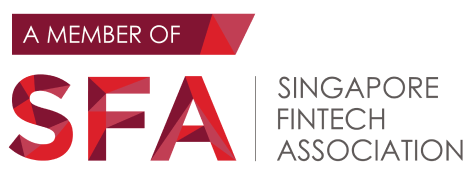How can we help?
About Moneylenders
You can verify if a moneylender is licensed by checking the Ministry of Law’s Registry of Moneylenders website. Always ensure you borrow from a licensed moneylender to avoid falling victim to scams.
EMVERTEX CREDIT offer various types of loans such as Personal Loans, Business Loans, Payday Loans, Foreigner Loans, and a handful of other loan types. Each type of loan will have a specific eligibility requirements and terms that you can find out in more details on our Loan pages,
Loan Limits & Fees
Singapore Citizens or Permanent Residents:
– Annual income below $20,000: Borrow up to $3,000
– Annual income of $20,000 or more: Borrow up to 6 times your monthly income.
Foreigner residing in Singapore:
– Annual income below $10,000: Borrow up to $5,000
– Annual income between $10,000 and $20,000: Borrow up to $3,000.
– Annual income of $20,000 or more: Borrow up to 6 times your monthly income.
Licensed moneylenders in Singapore can charge:
– A maximum of 4% interest per month
– A late payment interest of up to 4% per month on any overdue amount
Licensed moneylenders can impose the following fees:
– An upfront administrative fee (not exceeding 10% of the loan principal)
– Late payment fee (capped at $60 for each month of default)
– Legal fees as ordered by the court if there is a successful claim for the loan recovery
How can we help?
About Moneylenders
You can verify if a moneylender is licensed by checking the Ministry of Law’s Registry of Moneylenders website. Always ensure you borrow from a licensed moneylender to avoid falling victim to scams.
EMVERTEX CREDIT offer various types of loans such as Personal Loans, Business Loans, Payday Loans, Foreigner Loans, and a handful of other loan types. Each type of loan will have a specific eligibility requirements and terms that you can find out in more details on our Loan pages,
Loan Limits & Fees
Singapore Citizens or Permanent Residents:
– Annual income below $20,000: Borrow up to $3,000
– Annual income of $20,000 or more: Borrow up to 6 times your monthly income.
Foreigner residing in Singapore:
– Annual income below $10,000: Borrow up to $5,000
– Annual income between $10,000 and $20,000: Borrow up to $3,000.
– Annual income of $20,000 or more: Borrow up to 6 times your monthly income.
Licensed moneylenders in Singapore can charge:
– A maximum of 4% interest per month
– A late payment interest of up to 4% per month on any overdue amount
Licensed moneylenders can impose the following fees:
– An upfront administrative fee (not exceeding 10% of the loan principal)
– Late payment fee (capped at $60 for each month of default)
– Legal fees as ordered by the court if there is a successful claim for the loan recovery
Application Process
Generally, you will need:
– NRIC (for Singaporeans) or Passport/Work Permit (for foreigners)
– Proof of residence (e.g., utility bills or tenancy agreement)
– Proof of income (e.g., latest payslips, CPF contributions)
– Employment details and bank statements
Absolutely, foreigners living and working in Singapore are eligible to apply for Foreigner Loan with Singapore’s licensed moneylenders by providing valid Work Permit and Proof of Income.
Licensed moneylenders are prohibited from soliciting loans through SMS, WhatsApp, phone calls, or social media. Always be cautious if someone contacts you via these methods. Official loan applications should be done in person at the moneylender’s physical office.
To apply for a loan, you must:
– Visit the licensed moneylender’s office in person
– Provide all necessary documents (e.g., NRIC, proof of income)
– Review and sign the loan contract, which must include all terms, repayment schedule, and applicable fees. Ensure you understand the terms before signing.
Repayment Rules
If you are unable to repay your loan on time, contact your moneylender to discuss alternative payment arrangements. Licensed moneylenders can charge late fees and interest, but they are not allowed to harass or threaten you.
No, licensed moneylenders must follow strict guidelines when collecting debt. They cannot harass, threaten, or use abusive language. Any misconduct should be reported to the Registry of Moneylenders.
Most licensed moneylenders allow early loan repayment, but check your loan contract for any early repayment penalties. It’s always good to clarify this point before signing.
Scam Prevention
Loan scams often involve unsolicited offers via SMS, WhatsApp, or social media. Common signs include:
– The lender asks for upfront fees
– The loan process is entirely online without meeting in person
– Promises of loans without a credit check
– Unusually low interest rates immediately.
If you suspect a loan scam, do not engage with the sender. Do not provide personal information or make any payments. Report the incident to the police and the Registry of Moneylenders immediately.
Loan Agreement Basic
A loan agreement is a legal contract between you and the moneylender. It should clearly state:
– Loan Amount
– Interest Rates and Fees
– Repayment Schedule and Plans
– Any Penalties for Late or Missed Payments
Please ensure to carefully read and understand any loan agreement before signing.
Multiple Loans & Disputes
Yes, you can apply for loans from multiple moneylenders, but it’s important to assess your financial capability to repay them. Over-borrowing can lead to financial stress and legal consequences.
If you have a dispute with a licensed moneylender, try to resolve it directly. If that fails, you can file a complaint with the Registry of Moneylenders or seek assistance from organizations like
Debt Help
Yes, organizations such as Credit Counselling Singapore offer professional advice and help with debt management. They can provide you with options for repayment plans and strategies to reduce financial stress.
Application Process
Generally, you will need:
– NRIC (for Singaporeans) or Passport/Work Permit (for foreigners)
– Proof of residence (e.g., utility bills or tenancy agreement)
– Proof of income (e.g., latest payslips, CPF contributions)
– Employment details and bank statements
Absolutely, foreigners living and working in Singapore are eligible to apply for Foreigner Loan with Singapore’s licensed moneylenders by providing valid Work Permit and Proof of Income.
Licensed moneylenders are prohibited from soliciting loans through SMS, WhatsApp, phone calls, or social media. Always be cautious if someone contacts you via these methods. Official loan applications should be done in person at the moneylender’s physical office.
To apply for a loan, you must:
– Visit the licensed moneylender’s office in person
– Provide all necessary documents (e.g., NRIC, proof of income)
– Review and sign the loan contract, which must include all terms, repayment schedule, and applicable fees. Ensure you understand the terms before signing.
Repayment Rules
If you are unable to repay your loan on time, contact your moneylender to discuss alternative payment arrangements. Licensed moneylenders can charge late fees and interest, but they are not allowed to harass or threaten you.
No, licensed moneylenders must follow strict guidelines when collecting debt. They cannot harass, threaten, or use abusive language. Any misconduct should be reported to the Registry of Moneylenders.
Most licensed moneylenders allow early loan repayment, but check your loan contract for any early repayment penalties. It’s always good to clarify this point before signing.
Scam Prevention
Loan scams often involve unsolicited offers via SMS, WhatsApp, or social media. Common signs include:
– The lender asks for upfront fees
– The loan process is entirely online without meeting in person
– Promises of loans without a credit check
– Unusually low interest rates immediately.
If you suspect a loan scam, do not engage with the sender. Do not provide personal information or make any payments. Report the incident to the police and the Registry of Moneylenders immediately.
Loan Agreement Basic
A loan agreement is a legal contract between you and the moneylender. It should clearly state:
– Loan Amount
– Interest Rates and Fees
– Repayment Schedule and Plans
– Any Penalties for Late or Missed Payments
Please ensure to carefully read and understand any loan agreement before signing.
Multiple Loans & Disputes
Yes, you can apply for loans from multiple moneylenders, but it’s important to assess your financial capability to repay them. Over-borrowing can lead to financial stress and legal consequences.
If you have a dispute with a licensed moneylender, try to resolve it directly. If that fails, you can file a complaint with the Registry of Moneylenders or seek assistance from organizations like
Debt Help
Yes, organizations such as Credit Counselling Singapore offer professional advice and help with debt management. They can provide you with options for repayment plans and strategies to reduce financial stress.



